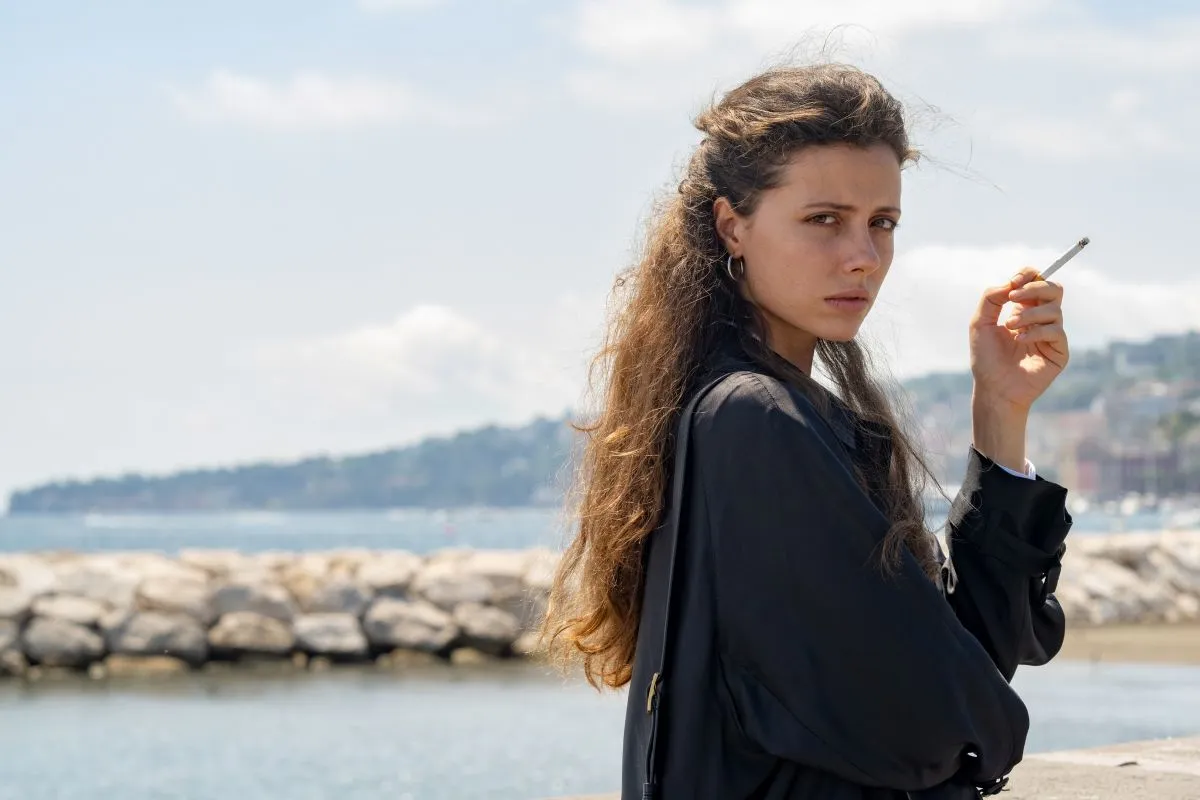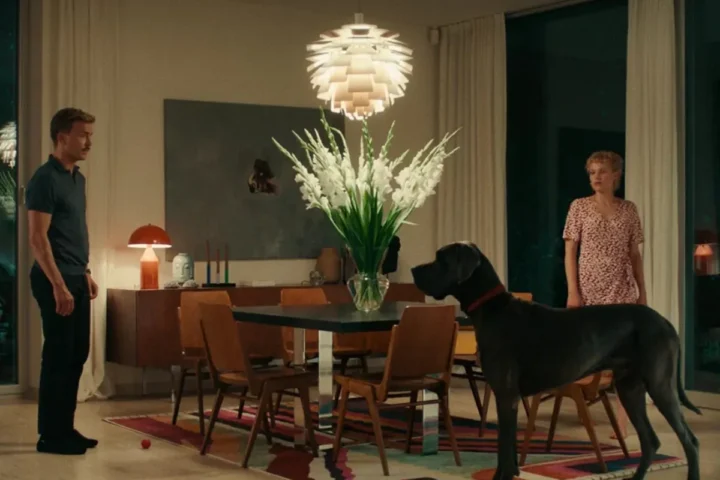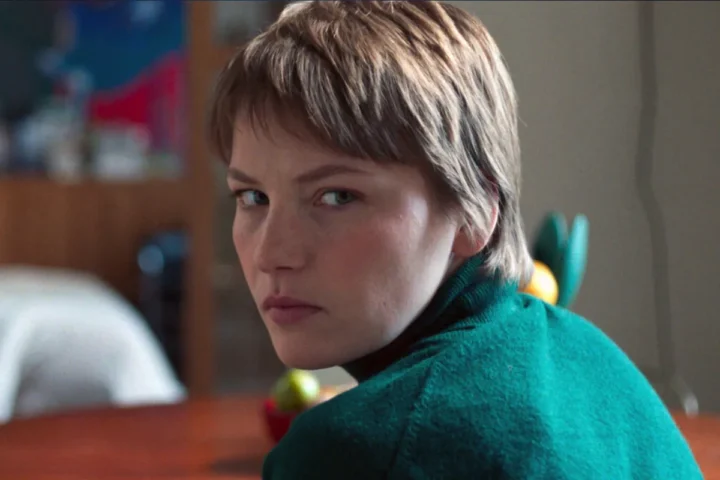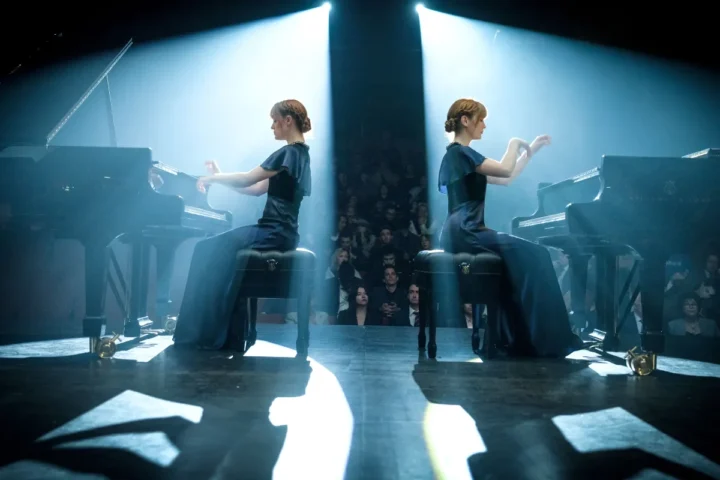With only a handful of credits to her name (a short, some TV, and a bit in Sorrentino’s last feature The Hand Of God/È Stata La Mano Di Dio), Porta might well have been cast here because she’s dazzlingly gorgeous, but she can really act. And a good thing too, considering that she holds this whole damn thing together.
A water birth off a Naples beach in 1950 and named after a Siren of Greek myth (the significance of which isn’t very clear), we pick up in 1968 when Parthenope (pronounced like ‘Penelope’) is looking ahead to a career in academia. Men and women are mesmerised by her as she lounges about in bikinis, but she’s also brilliant and full of compassion, and more than one of the many supporting characters admires her because she doesn’t use her beauty to her advantage, which isn’t quite true… but anyway.
Wandering around some at times grungy Naples locations (and smoking like a chimney), Parthenope is obsessed over by her brother Raimondo (Daniele Rienzo) and several suitors as, all the while, improbable events transpire. She forces herself into university by convincing beardy professor Devoto (Silvio Orlando) that she can handle existential ideas and spends time with a drunk American writer played by no less than Gary Oldman. Apparently, Sorrentino contacted Oldman knowing that the actor was a fan, and Gary happily agreed to what is essentially just a strange, extended cameo.
Into the 1970s tragedy of various types strikes, and Parthenope wonders whether she should take up acting until a bizarre evening with melodramatic teacher Flora Malva (Isabella Ferrari), who steals a kiss while two are in a steam room. There’s also a tedious interlude with a grisly bishop (Pepe Lanzetta), as well as a run-in with a cruel celebrity named Greta Cool (Luisa Ranieri), who’s full of nasty anti-Naples sentiment that probably won’t make much sense to anyone outside Italy.
Even more extravagant than Sorrentino’s best-known outing, the Oscar-winning The Great Beauty/La Grande Bellezza, this is a little stronger than that overrated epic simply because Parthenope is a more dynamic character than the childish fool at the heart of that other movie.
But, in the end, Sorrentino is, of course, vastly more interested in himself than her.
Naturalmente!
Parthenope
2.5 stars out of 5
Parthenope screens at cinemas from Boxing Day









